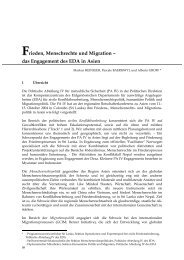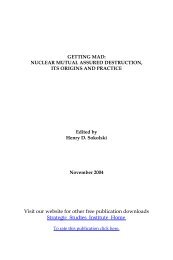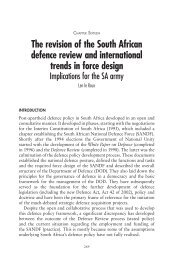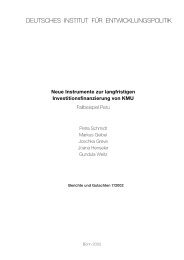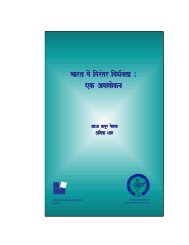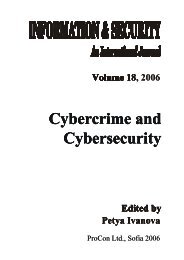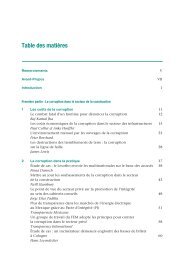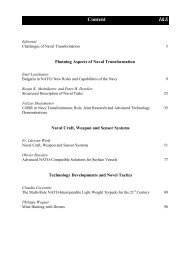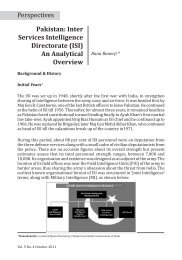Andreas Stamm Eva Dantas Doris Fischer Sunayana ... - ETH Zürich
Andreas Stamm Eva Dantas Doris Fischer Sunayana ... - ETH Zürich
Andreas Stamm Eva Dantas Doris Fischer Sunayana ... - ETH Zürich
Create successful ePaper yourself
Turn your PDF publications into a flip-book with our unique Google optimized e-Paper software.
Sustainability-oriented innovation systems<br />
Summary<br />
At the beginning of the new Millennium, the world is faced with a normative dilemma:<br />
While the goal of a fast poverty reduction would call for higher economic growth rates in<br />
most of the developing world, more dynamic growth would increase pressure on the natural<br />
environment if growth patterns are not significantly altered. The paper argues that to<br />
reconcile various development goals, ways have to be found to effectively decouple economic<br />
growth from environmental pressure, in ways that allow for high value addition and<br />
welfare creation, while at the same time minimising the impact on the resource base and<br />
sink capacities of the environment.<br />
There is no empirical evidence that this decoupling might occur automatically as economies<br />
and societies mature, as postulated by the environmental Kuznets curve. The transition<br />
from an economy based mainly on industrial activities towards a service economy<br />
might reduce resource consumption and emissions in one country, but this will most often<br />
mean simply externalising environmental costs, with manufactured goods being imported<br />
from other countries or world regions. Nor is it possible to identify any generalised transition<br />
towards post-materialist values that could mitigate the pressures on the environment,<br />
and there is no reason to expect this, either, as long as many human beings continue to<br />
struggle to escape absolute poverty.<br />
Policy is needed to achieve effective decoupling, and technology development and deployment<br />
will have to play a crucial role. Innovations are often directly related to improved<br />
environmental performance, e.g. in connection with increased energy efficiency of<br />
processes and reduced product material requirements. However, technology-driven improvements<br />
in resource productivity have thus far been outpaced by economic growth,<br />
even in world regions with strong innovation systems and relatively low growth rates,<br />
such as the European Union (EU). What this means is that overall resource and energy<br />
consumption has not decreased. Thus, technological innovations need to be developed at a<br />
higher rate and translated into practice at a quicker pace. And their impact on resource<br />
efficiency needs to be enhanced significantly.<br />
What is called for to achieve this is determined efforts that involve not only the traditional<br />
technological powerhouses in the North but also the developing countries. A special role<br />
will have to be played by a number of large anchor countries, first of all Brazil, China,<br />
India and South Africa. On the one hand, they have developed a rather large ecological<br />
footprint, e.g. due to large-scale and coal-based energy production or extensive deforestation.<br />
On the other hand, they have built up relatively high levels of technological capability.<br />
While technology transfer will have to play an important role in innovation-driven decoupling<br />
efforts, this instrument must be embedded in more comprehensive strategies.<br />
These will have to involve efforts to strengthen technological capabilities in the anchor<br />
countries as well as joint Research and Development (R&D) efforts between industrialised<br />
and developing countries. There are three main factors that explain why technology transfer<br />
is only part of the solution:<br />
− First, technology transfer can only be effective where a reasonable degree of technological<br />
capability is already in place.<br />
German Development Institute / Deutsches Institut für Entwicklungspolitik (DIE) 1






